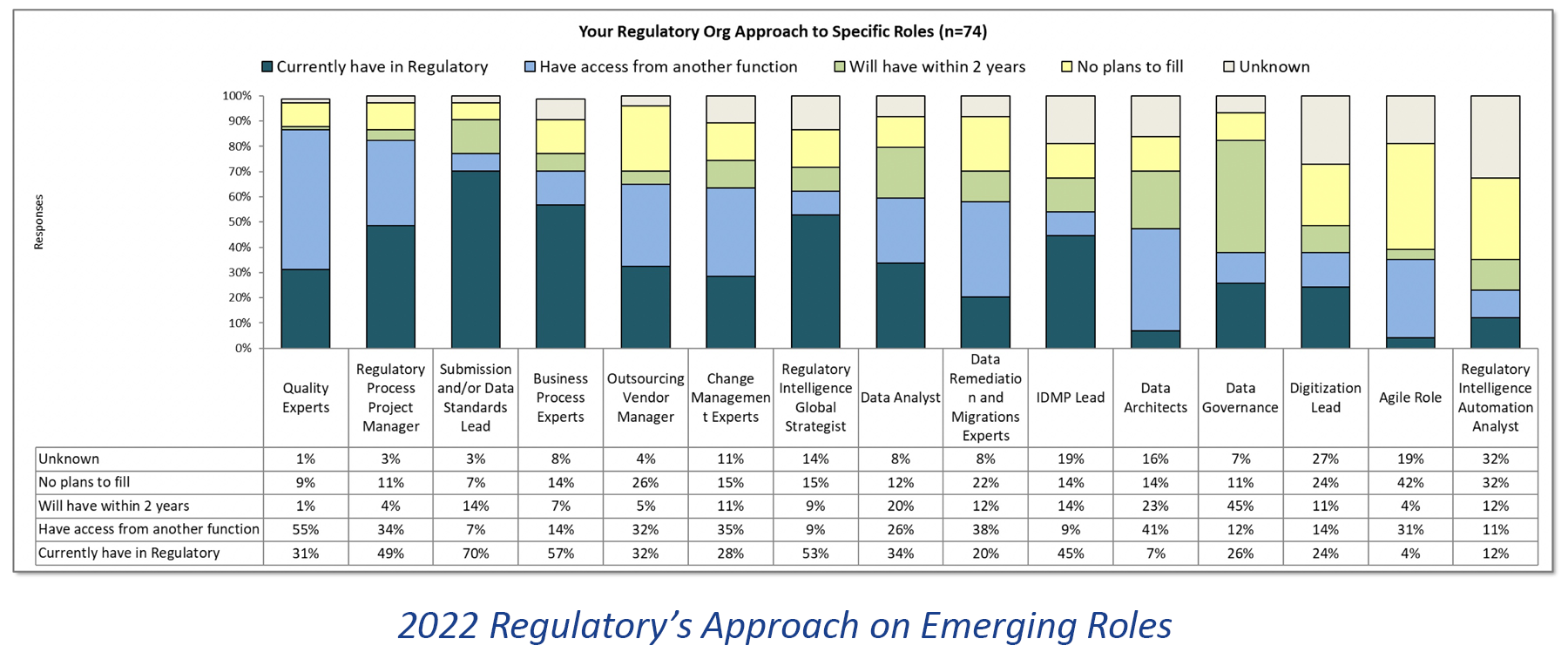The Future of Work: Evolving the Regulatory Workforce
By Katherine Yang-Iott
The past few weeks, we’ve shared our thoughts on accelerating business value realization, aligning on a digitalization strategy, data quality sustainability, and the impact of culture for an organization…and what those all have in common is the need for people and skillsets to accomplish the work.
We’ve seen a clear focus in our consulting work over the past 18 months where companies are exploring and investing in ways to inject innovation into the Regulatory organization by upskilling their regulatory workforce, redefining and clarifying roles and responsibilities, and introducing emerging roles to align with strategic initiatives and longer-term goals.
The 2022 World Class RIM study reveals significant interest in Data Governance roles in the next 2 years (45% of participants), along with Data Analyst (20%) and Data Architect (23%) roles too, which tracks with the on-going work we see with Regulatory teams’ plans to improve data quality confidence.
While the conversations on the need and desire for digitalization continue to grow, less than 50% of companies currently have these related roles, such as a Digitalization Lead or Reg Intel Automation Analyst, which leads us to question why the gap in fulfilling skillsets required to carry out digitalization initiatives? Is true digitalization stuck in the aspiration stage?
Envisioning a future-ready workforce is not a simple task and not all companies are ready to reskill everyone at once, but it is very important to remember that roles and responsibilities will change with system and process changes and that new skills will be required to support the business going forward.
- What will the workplace look like in 10 years? Are you hiring/developing employees of the past or employees for the future? Upskilling and digital dexterity will rival tenure and experience as ways of working continues to shift. Proficiency in technologies, end-to-end process thinking, and collaboration will become core competencies.
- If automation is the future, how does that shift the workplace in terms of ‘what’ people will be doing? What kinds of skills or knowledge (hard skills vs. soft skills) will be important as people shift from ‘doing’ the work to ‘managing the process’ of the work being done? As work gets augmented by advanced technology, people will be needed for creativity, strategy, decision-making, and innovation.
We’ve repeatedly expressed our opinion on the importance of culture on your organization and we’ll do it again here. A learning organization is one that is prepared for progress. Fostering a culture of continuous learning means maintaining an environment where employees are encouraged to learn and develop — and given the time and opportunities to do so, they can grow with the organization.
Several years ago, I was at a planning meeting discussing the increasing budgets for continuous learning and employee development when someone asked, “What if we spend all this money and effort to develop someone and then they just leave?”, to which the CEO responded with, “What if we don’t and they stay”?







